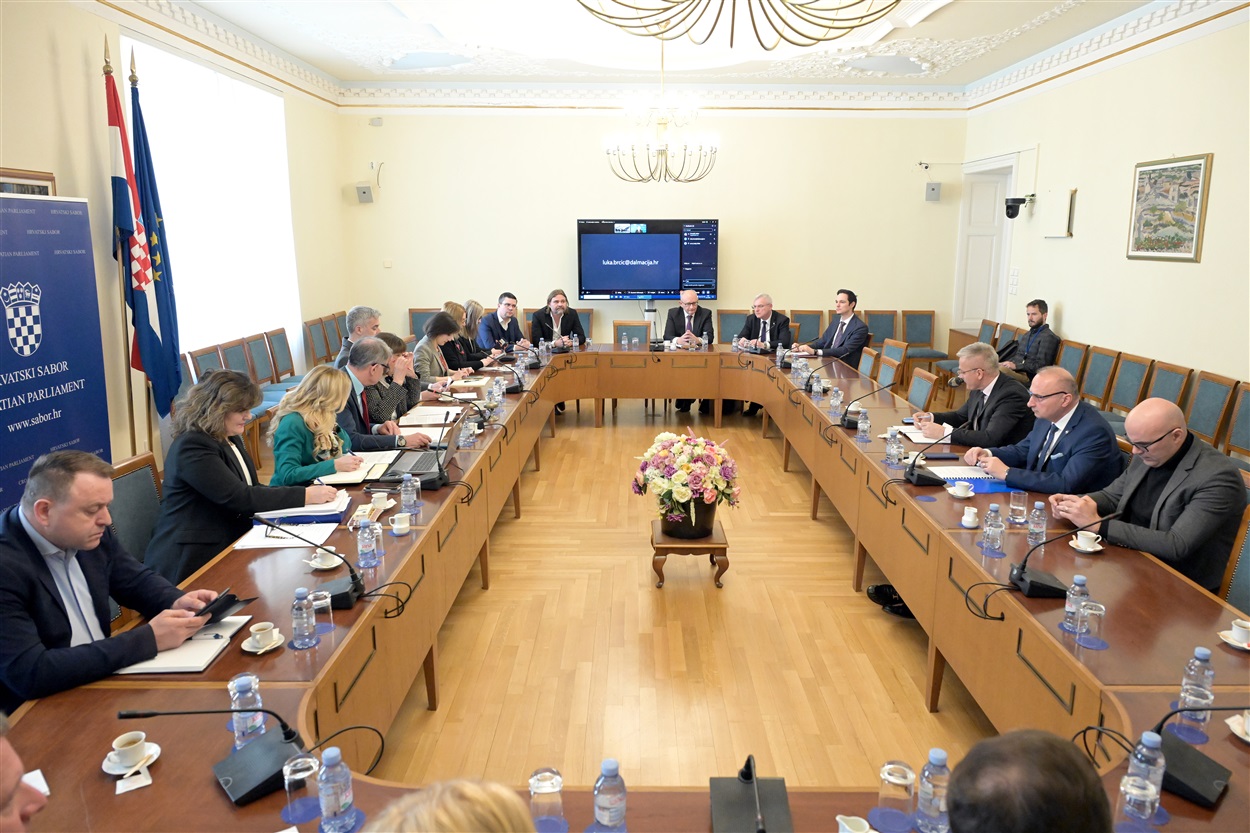
Zagreb - Croatia hopes that political forces in Bosnia and Herzegovina that advocate cooperation will prevail, Minister for Foreign and European Affairs Gordan Grlić Radman told a joint meeting of the Croatian Parliament's Committee on Croats Abroad and Committee on Foreign Affairs on Wednesday.
The two committees met together to discuss the role of Croats and cooperation between Croatia and Bosnia and Herzegovina on that country's Euro-Atlantic path.
The meeting was addressed by Minister Grlić Radman, saying that Bosnia and Herzegovina had begun this year "in a much more positive atmosphere compered to the highly turbulent 2022."
Bosnia and Herzegovina has been granted the status of a candidate for EU membership. A new government is currently being formed and its agenda includes EU integration and implementation of the necessary reforms.
"We are seeing an extraordinary dynamic of bilateral visits and meetings that indicate a new approach," Grlić Radman said.
"We expect that the political forces in Bosnia and Herzegovina that advocate cooperation within the country and with neighbouring countries will prevail," he stressed.
He added that "a crude media campaign" was ongoing in the country putting further pressure on international High Representative Christian Schmidt and the Bosniak political leaders who were trying to build "a constructive relationship" with Croats and Croatia. Their openness to cooperation is being portrayed in this campaign as a betrayal of Bosniak interests.
Bosnia and Herzegovina's Deputy Foreign Minister Josip Brkić said at the meeting he believed that the government formation process would be completed in due time despite all the difficulties and challenges.
Brkić welcomed the fact that the Croatian Parliament was discussing Bosnia and Herzegovina, emphasising the importance of parliamentary diplomacy and connections with the parliaments of other European countries.
"The lack of an integration path opens up the space for Russia, China, Iran, Turkey and others that are opposed to Bosnia and Herzegovina's European path," he said.
Božo Ljubić, Chairman of the General Council of the Croatian National Assembly of Bosnia and Herzegovina, said that the formation of government in the country's Bosniak-Croat Federation entity was still locked in a stalemate. This is a challenge to the Croats because they want to form a government with eight Bosniak and civic-oriented parties that do not have a majority. The so-called controlling stake is held by the largest Bosniak party SDA after it persuaded some lawmakers to cross the floor, said Ljubić.
Ljubić said that the SDA had obtained the majority by "buying off a certain number of MPs" who entered the Parliamentary Assembly on other lists.
He warned that the Bosniak-civic bloc was a heterogeneous group in which "some parties and individuals are eagerly awaiting a change of leadership in the SDA" so they could return to that party.
That's why it is important to form the government as soon as possible because "experience shows that in Bosnia and Herzegovina governments are hard to form but even harder to break up," he said.
Ljubić noted that there are three political concepts at play in Bosnia and Herzegovina -- Bosniak unitarism mostly promoted by the SDA, secessionism advocated by Serb parties, and federalism supported by, among others, Croat parties.
"What is positive is that the international community has realised this and is acting to support the federalist concept," Ljubć said.
Grlić Radman said that "great progress" had been made on the international scene with regard to Bosnia and Herzegovina.
"All EU countries are now competing as to who will organise something in connection with Bosnia and Herzegovina, who will attract good foreign policy publicity by speaking about Bosnia and Herzegovina," Grlić Radman said. "It's much easier to talk about Bosnia and Herzegovina in Brussels now because everyone wants to understand it."
He pointed out that the international community had realised that Croatia did not have a hidden agenda in Bosnia and Herzegovina and that the stability of that country was in the interests of the whole continent.
The Chairman of the Foreign Affairs Committee, Gari Cappelli, announced that a Croatian Parliament delegation would visit the German Bundestag on 20 April to attend a discussion on the Western Balkans and Bosnia and Herzegovina, and would use that occasion to again express Croatia's dissatisfaction with a resolution it had adopted in early July 2022.
The 22-point resolution deplores the nationalistic aspirations of the Bosniak, the Serb and the Croat sides, and it also condemns the separatist tendencies of Bosnian Serb and Croat leaders: Milorad Dodik and Dragan Ćović. However, the fact that the document makes no mention of Bosniak leader Bakir Izetebgović as a promoter of nationalistic policies has caused disputes among members of the SPD group in the German legislature.
The document had been initiated by MP of Bosniak origin, Adis Ahmetović.